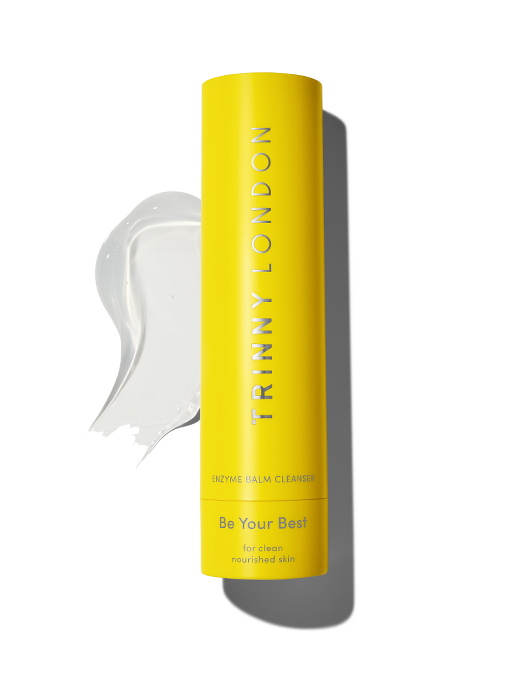
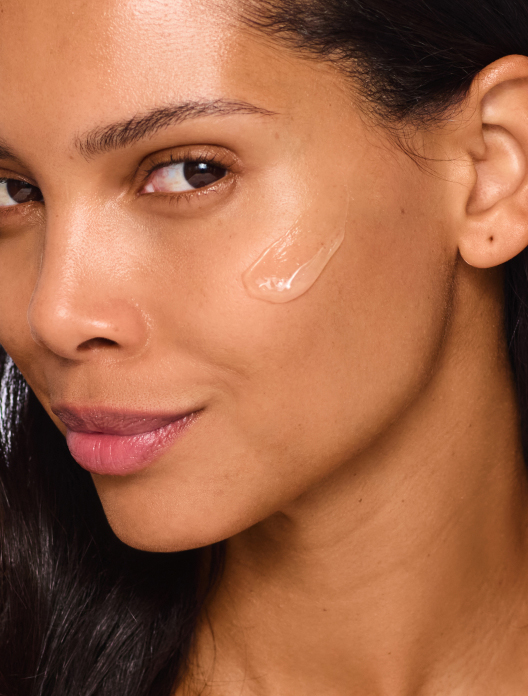
Be Your Best
Oil-based transforming cleanser for clean, nourished skin, suitable for all skin types

Dry skin is skin that doesn’t produce enough sebum, and is therefore naturally lacking in oil. This is a long-term concern, and one that requires maintenance to keep skin happy. Dehydrated skin on the other hand, is skin that is lacking in water. This is a temporary condition caused by things like weather, diet and using the wrong skincare.
To make it easy for you to decipher whether your skin sits on the dry or dehydrated side of the fence, we’ve broken down the key signs and causes – as well as advice for how to care for each. And no, it's not as simple as just using a moisturiser (although that will help).
If your skin is dry, it’s likely you have been experiencing symptoms of dryness your whole life. You will find that your face feels either a selection of or a full-house of dry, rough, itchy, red and flaky. If you have a darker skin tone, you may also notice that your complexion appears ashy. People with dry skin often find that their skin feels uncomfortably dry or tight after cleansing, and would never dream of forgoing their moisturiser.
Just like the colour of our eyes, our skin type is determined by genetic factors.
As we age, the natural levels of sebum in our skin decrease.
The outermost layers of the skin work like a barrier, playing a huge role in skin health. They keep the good stuff like water and oil in, and nasties like pollution out. Think of your skin cells as bricks, and lipids such as ceramides, fatty acids and cholesterol as the mortar. Without the mortar cracks will appear and the walls will begin to crumble. Slathering on a ceramide-rich moisturiser will help reinforce your skin barrier, helping skin to better retain moisture for a softer, more supple complexion.
Dry skin doesn’t make enough of it’s own oil, so adding oils through your skincare will always be a welcome addition. Facial oils are both emollients and occlusives, meaning they not only soften and smooth your skin, but create a seal over it to lock in moisture. Think of it like covering your complexion in a super soft, comforting blanket. Rosehip, sweet almond and argan oils are all a good choice for those with dry skin.
Feeling like skin remains rough no matter how well you moisturise it is a common complaint amongst those with dry skin. If this sounds like you, it could be a sign you need to introduce an exfoliant into your routine. Liquid exfoliants poly-hydroxy acids (or PHAs) like gluconolactone and lactobionic acid are a great place to start. Their molecule size is bigger than their punchier counterparts alpha-hydroxy acids, meaning they don’t penetrate quite as deeply or work as quickly. Instead, they’ll carefully clear away those radiance-robbing dead skin cells from the surface levels of your complexion.
Dehydrated skin can be trickier to recognise than dry skin for two key reasons. Firstly, it’s a short-term condition that can arise at any time. You may have never experienced dehydration before and suddenly find your skin feels tight and looks dull, with fine lines exaggerated. The second reason is that skin can be both oily and dehydrated all at once, where skin is rich in oil but lacking in water.
Still not sure if your skin is dehydrated? Sit by a mirror in good lighting and use your finger to lift one of your cheeks upwards. If you can see lines, this shows a shortage of water in the upper levels of the skin.
Both alcohol and caffeine are diuretics, meaning they promote water loss through urination. Drinking too much of either can contribute towards thirsty complexions.
Plummeting and soaring temperatures outdoors tend to come in hand with central heating and air conditioning, and all four can wreak havoc on our skin.
Scorching showers can dry the skin out, leaving it more dehydrated than before.
Using skincare that is too harsh or unsuitable for your skin type can leave your skin dehydrated. Products designed for oily skin are among the worst culprits.
We know we said hot showers are bad news for your skin, but that doesn’t mean cold water is any better. Extreme temperatures at either end of the spectrum can disrupt skin, leading to dehydration. For a happy medium, use tepid, lukewarm water.
When our skin is oily, there’s a real temptation to throw the kitchen sink at it in order to reduce the flow. Stripping washes with astringent ingredients won’t just rinse away excess oil, but much-needed moisture from your skin too. Swap harsh foams for comforting cleansing balms and more delicate gel cleansers.
As we’ve established, dehydrated skin is crying out for a generous glug of water. Double down on products that contain humectants like glycerin and hyaluronic acid. These ingredients work like magnets, drawing in water from the atmosphere. They’re hard-working too, with a single molecule of hyaluronic acid able to hold up to 1000 times its own weight in water. Our top tip? Apply a hyaluronic acid serum before you hop in the shower or soak in the bath. The steamy environment of your environment means plenty of moisture for it to grab hold of.
Shop the article


Oil-based transforming cleanser for clean, nourished skin, suitable for all skin types
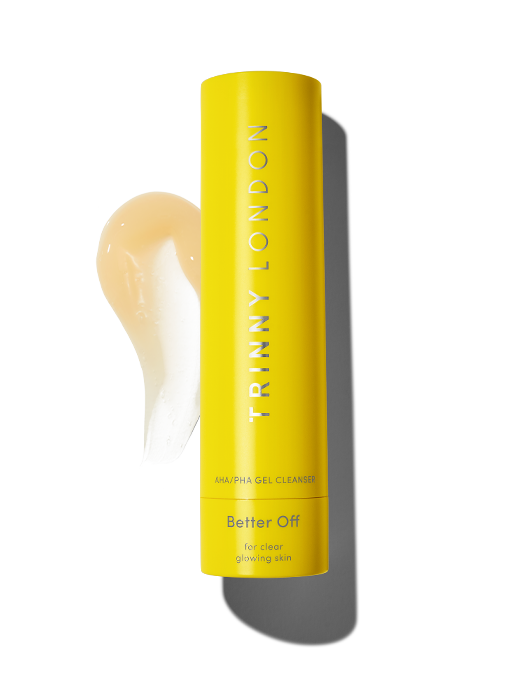

Exfoliating gel cleanser for clear, glowing skin, suitable for all skin types
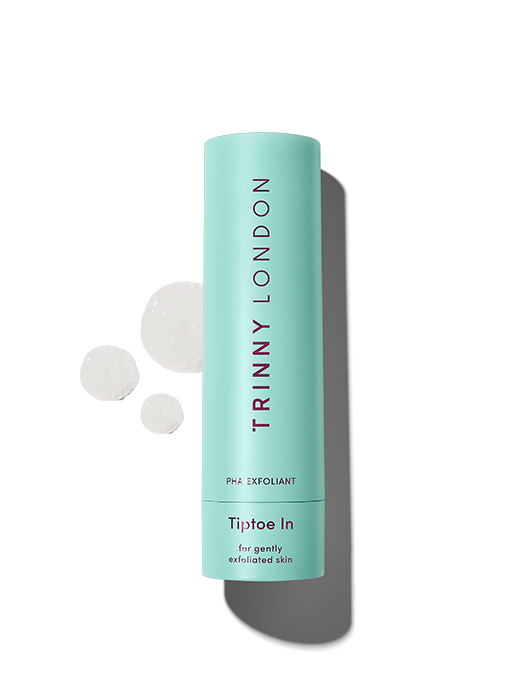
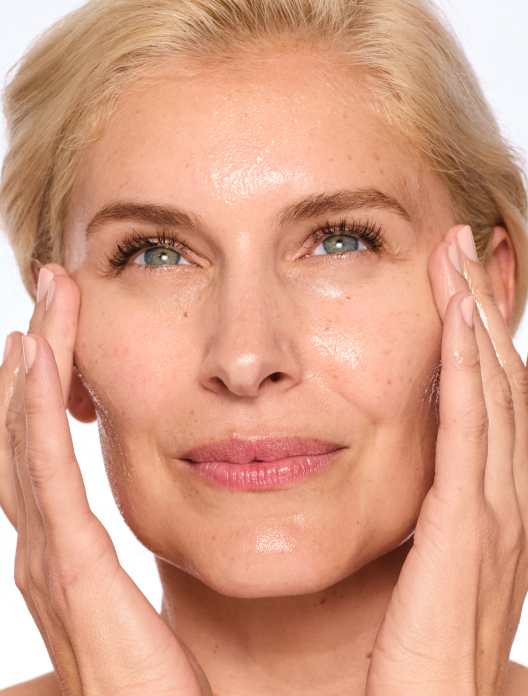
Kind-to-skin exfoliant for radiant skin, suitable for all skin types
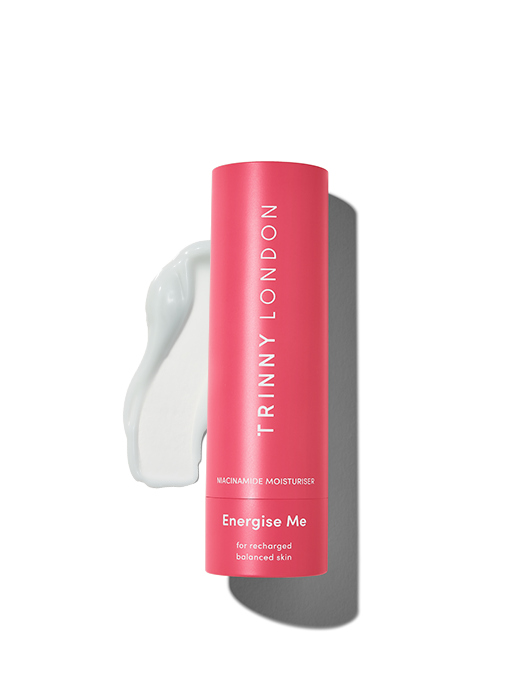
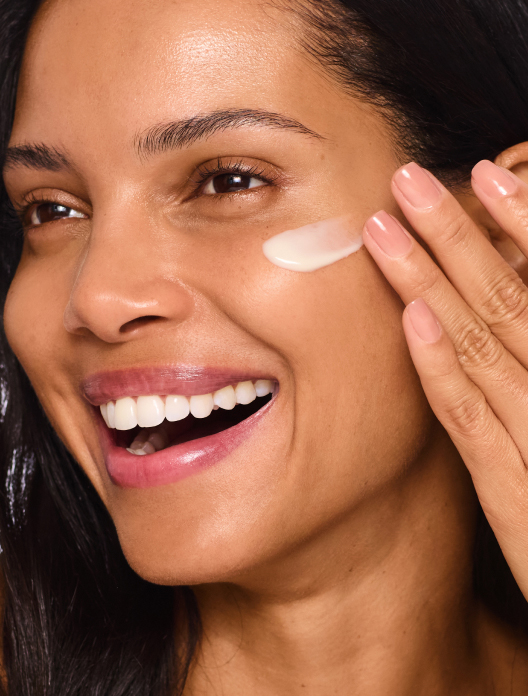
Niacinamide moisturiser for clear, energised skin, suitable for normal to oily skin
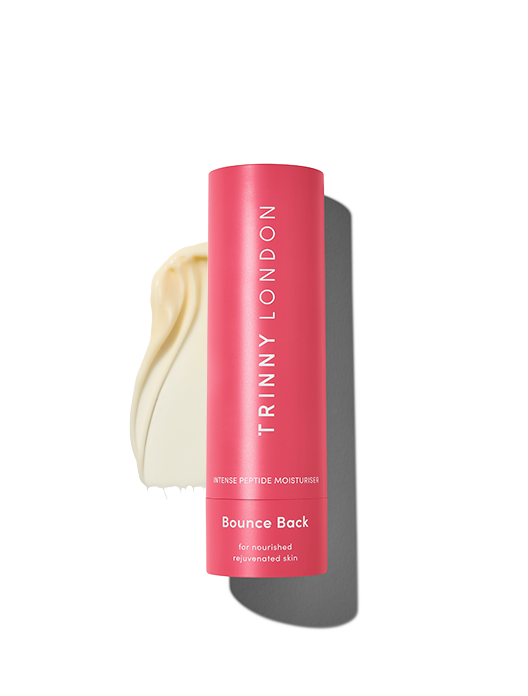

Intense peptide moisturiser for plump, bouncy skin, suitable for normal to dry skin
Read, watch and be inspired...